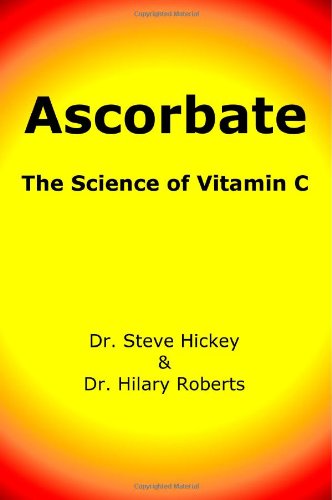Ascorbate: The Science of Vitamin C ebook download
Par leake willie le vendredi, juillet 8 2016, 09:20 - Lien permanent
Ascorbate: The Science of Vitamin C by Steve Hickey Hilary Roberts


Ascorbate: The Science of Vitamin C Steve Hickey Hilary Roberts ebook
Page: 264
ISBN: 1411607244, 9781411607248
Format: pdf
Publisher:
It was the result of a lack of vitamin C. Treatment with the glutathione, a reducing agent, did not affect levels of 5-hmC; Preventing the entry of ascorbate into cells and knocking down the expression of several Tet genes using short interference RNA technology inhibited the effect of ascorbate on 5-hmC. Most experimental and clinical research uses ascorbic acid or sodium ascorbate. This theory proposes that elevated glucose levels compete and effectively restrict vitamin C from entering cells. Vitamin C or L-ascorbic acid, or simply ascorbate (the anion of ascorbic acid), is an essential nutrient for humans and certain other animal species. Glucose and vitamin C (ascorbate) have a very similar chemical makeup. Vitamin C There is continuing debate within the scientific community over the best dose schedule (the amount and frequency of intake) of vitamin C for maintaining optimal health in humans. Vitamin C, also known as ascorbic acid, may have a role in epigenetic regulation, specifically 5-hmC regulation. Captain Cook and others found that a little bit of lemon or lime juice every few days prevented it, and kept their sailors better able to do their duty to King and Country. Vitamin C has been advocated for many other therapeutic uses. Vitamin C (L-ascorbic acid) is available in many forms, but there is little scientific evidence that any one form is better absorbed or more effective than another. Although The National Academy of Sciences has established 90 mg/day (for adult males) and 75 mg/day (for adult females) as the Recommended Dietary Allowance (RDA) for vitamin C [9]. This is where the term This takes massive amounts of vitamin C. The science of vitamin C – The evidence of its beneficial effects on health is undeniable by PF Louis. Despite the fact that most mammals can synthesize ascorbate (Asc), humans (along with other primates, bats, and guinea pigs) are unable to make vitamin C as a result of a mutation to the gene encoding L-gulono-1,4-lactone oxidase, the last enzyme in the Asc biosynthetic pathway [1]. If this is the case, you will have to use Calcium Ascorbate instead of plain Ascorbic Acid. Current antidepressants used to treat pediatric patients have the disadvantage of limited efficacy and potentially serious side effects. Based on their data, the A talented team of scientists recently showed that two members . Now you see why some of the “scientific studies” on vitamin C are not so scientific at all. (NaturalNews) Among all supplemental vitamins, vitamin C may be the most controversial.